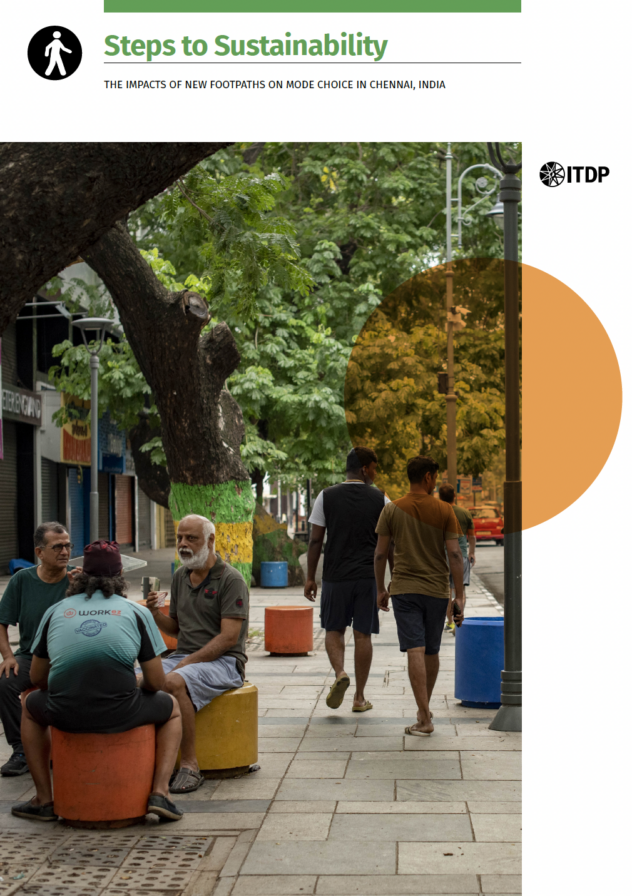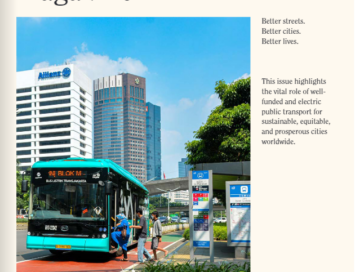Steps to Sustainability: The Impacts of New Footpaths in Chennai
About
Between 2013 and 2019, the city of Chennai, India designed and built footpaths on more than 100 km of streets. Using data collected in 2019, ITDP found that between 9% and 29% of people walking on the improved footpaths would have used a private motorized mode if the footpaths had not been improved.
As a result, the research estimates that between 4,200 tonnes and 12,000 tonnes of CO2-equivalent greenhouse gas emissions are prevented annually thanks to the footpath improvements. This is equivalent to taking about 1,000 to 2,900 cars off the road for one year. Additionally, by shifting away from motor vehicles, footpath users reduce particulate matter less than 2.5 micrometers in diameter (PM2.5), and their increased walking activity prevents about 340 deaths each year from noncommunicable diseases.
This study presents evidence that improved footpaths are a highly cost-effective means to mitigate greenhouse gas emissions (GHGs), improve public health, save money for residents, and improve public safety in cities in lower- and middle-income countries (LMICs).
To our knowledge, this is the first study to demonstrate this connection empirically and makes an important contribution to existing literature by demonstrating the significant modal shift, climate, air quality, and other impacts of footpath infrastructure in LMICs.
Clearly, investments in walking infrastructure can have significant and tangible benefits in many countries. These benefits accrue not only to pedestrians but to society at large. Constructing well-designed footpaths is an efficient way to shift city residents away from polluting vehicles, reduce thousands of tonnes of GHGs per year, and improve well-being.
Learn More
- Explore Walkability in Your City with ITDP’s Atlas of Sustainable City Transport →
- Learn More about ITDP’s Pedestrians First resources →
- Watch “The Power of Walkability” webinar →
Interested in learning more about this report or have a press inquiry? Email us at [email protected].




